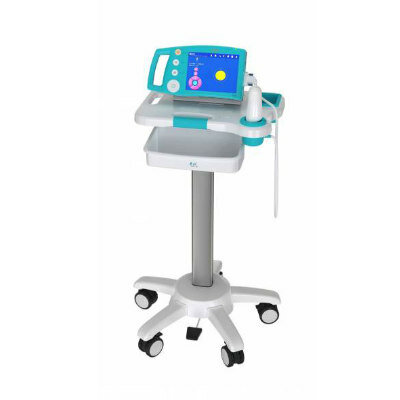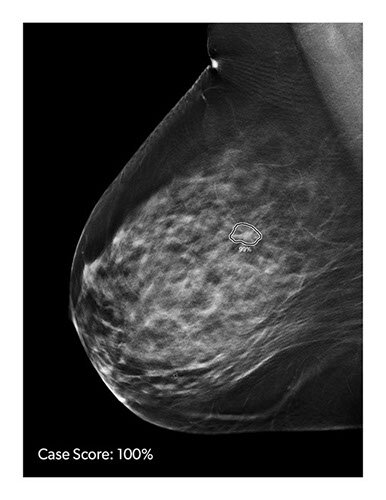Google DeepMind to Explore Streamlining Radiotherapy Planning
|
By MedImaging International staff writers Posted on 05 Oct 2016 |

Image: Google\'s DeepMind has the capacity to build an artificial intelligence computer that mimics the human brain (Photo courtesy of Google DeepMind).
A collaboration between Google DeepMind (London, United Kingdom) and England’s National Health Service (NHS, London) will evaluate the potential for machine learning in making radiotherapy (RT) planning more efficient.
The collaboration will be through a partnership with University College London Hospital (UCLH; United Kingdom), and will involve analysis of many as 700 former head and neck cancer patients, with the hope that artificial intelligence (AI) machine learning could decrease segmentation process time from four hours to just one. According to DeepMind, the project could also lead to the development of a RT segmentation algorithm with potential applications beyond head and neck cancers.
“Developing machine learning which can automatically differentiate between cancerous and healthy tissue on radiotherapy scans will assist clinicians in planning radiotherapy treatment,” said Yen-Ching Chang, MD, clinical lead for radiotherapy at UCLH. “This has the potential to free up clinicians to spend even more time on patient care, education and research, all of which would be to the benefit of our patients and the populations we serve.”
“This real-world application of artificial intelligence technology is exactly why we set up DeepMind. We’re incredibly excited to be working with the radiotherapy team at UCLH to explore how AI can help to reduce the time it takes to plan radiotherapy treatment for head and neck cancer patients,” said Mustafa Suleyman, co-founder and head of applied AI at Google DeepMind. “We hope this work could lead to real benefits for cancer patients across the country and for the clinicians who treat them.”
DeepMind is a AI company founded in September 2010 which created a neural network that can able to access an external memory like a conventional Turing machine, resulting in a computer that mimics the short-term memory of the human brain; it was acquired by Google in 2014. In July 2016, Google DeepMind partnered with Moorfields Eye Hospital (London, United Kingdom) in a project designed to use AI for the early detection and treatment of preventable eye diseases by analyzing retinal scans.
Related Links:
Google DeepMind
National Health Service
University College London Hospital
The collaboration will be through a partnership with University College London Hospital (UCLH; United Kingdom), and will involve analysis of many as 700 former head and neck cancer patients, with the hope that artificial intelligence (AI) machine learning could decrease segmentation process time from four hours to just one. According to DeepMind, the project could also lead to the development of a RT segmentation algorithm with potential applications beyond head and neck cancers.
“Developing machine learning which can automatically differentiate between cancerous and healthy tissue on radiotherapy scans will assist clinicians in planning radiotherapy treatment,” said Yen-Ching Chang, MD, clinical lead for radiotherapy at UCLH. “This has the potential to free up clinicians to spend even more time on patient care, education and research, all of which would be to the benefit of our patients and the populations we serve.”
“This real-world application of artificial intelligence technology is exactly why we set up DeepMind. We’re incredibly excited to be working with the radiotherapy team at UCLH to explore how AI can help to reduce the time it takes to plan radiotherapy treatment for head and neck cancer patients,” said Mustafa Suleyman, co-founder and head of applied AI at Google DeepMind. “We hope this work could lead to real benefits for cancer patients across the country and for the clinicians who treat them.”
DeepMind is a AI company founded in September 2010 which created a neural network that can able to access an external memory like a conventional Turing machine, resulting in a computer that mimics the short-term memory of the human brain; it was acquired by Google in 2014. In July 2016, Google DeepMind partnered with Moorfields Eye Hospital (London, United Kingdom) in a project designed to use AI for the early detection and treatment of preventable eye diseases by analyzing retinal scans.
Related Links:
Google DeepMind
National Health Service
University College London Hospital
Latest Nuclear Medicine News
- New SPECT/CT Technique Could Change Imaging Practices and Increase Patient Access
- New Radiotheranostic System Detects and Treats Ovarian Cancer Noninvasively
- AI System Automatically and Reliably Detects Cardiac Amyloidosis Using Scintigraphy Imaging
- Early 30-Minute Dynamic FDG-PET Acquisition Could Halve Lung Scan Times
- New Method for Triggering and Imaging Seizures to Help Guide Epilepsy Surgery
- Radioguided Surgery Accurately Detects and Removes Metastatic Lymph Nodes in Prostate Cancer Patients
- New PET Tracer Detects Inflammatory Arthritis Before Symptoms Appear
- Novel PET Tracer Enhances Lesion Detection in Medullary Thyroid Cancer
- Targeted Therapy Delivers Radiation Directly To Cells in Hard-To-Treat Cancers
- New PET Tracer Noninvasively Identifies Cancer Gene Mutation for More Precise Diagnosis
- Algorithm Predicts Prostate Cancer Recurrence in Patients Treated by Radiation Therapy
- Novel PET Imaging Tracer Noninvasively Identifies Cancer Gene Mutation for More Precise Diagnosis
- Ultrafast Laser Technology to Improve Cancer Treatment
- Low-Dose Radiation Therapy Demonstrates Potential for Treatment of Heart Failure
- New PET Radiotracer Aids Early, Noninvasive Detection of Inflammatory Bowel Disease
- Combining Amino Acid PET and MRI Imaging to Help Treat Aggressive Brain Tumors
Channels
Radiography
view channel
Novel Breast Imaging System Proves As Effective As Mammography
Breast cancer remains the most frequently diagnosed cancer among women. It is projected that one in eight women will be diagnosed with breast cancer during her lifetime, and one in 42 women who turn 50... Read more
AI Assistance Improves Breast-Cancer Screening by Reducing False Positives
Radiologists typically detect one case of cancer for every 200 mammograms reviewed. However, these evaluations often result in false positives, leading to unnecessary patient recalls for additional testing,... Read moreMRI
view channel
PET/MRI Improves Diagnostic Accuracy for Prostate Cancer Patients
The Prostate Imaging Reporting and Data System (PI-RADS) is a five-point scale to assess potential prostate cancer in MR images. PI-RADS category 3 which offers an unclear suggestion of clinically significant... Read more
Next Generation MR-Guided Focused Ultrasound Ushers In Future of Incisionless Neurosurgery
Essential tremor, often called familial, idiopathic, or benign tremor, leads to uncontrollable shaking that significantly affects a person’s life. When traditional medications do not alleviate symptoms,... Read more
Two-Part MRI Scan Detects Prostate Cancer More Quickly without Compromising Diagnostic Quality
Prostate cancer ranks as the most prevalent cancer among men. Over the last decade, the introduction of MRI scans has significantly transformed the diagnosis process, marking the most substantial advancement... Read moreUltrasound
view channel
Deep Learning Advances Super-Resolution Ultrasound Imaging
Ultrasound localization microscopy (ULM) is an advanced imaging technique that offers high-resolution visualization of microvascular structures. It employs microbubbles, FDA-approved contrast agents, injected... Read more
Novel Ultrasound-Launched Targeted Nanoparticle Eliminates Biofilm and Bacterial Infection
Biofilms, formed by bacteria aggregating into dense communities for protection against harsh environmental conditions, are a significant contributor to various infectious diseases. Biofilms frequently... Read moreGeneral/Advanced Imaging
view channel
New AI Method Captures Uncertainty in Medical Images
In the field of biomedicine, segmentation is the process of annotating pixels from an important structure in medical images, such as organs or cells. Artificial Intelligence (AI) models are utilized to... Read more.jpg)
CT Coronary Angiography Reduces Need for Invasive Tests to Diagnose Coronary Artery Disease
Coronary artery disease (CAD), one of the leading causes of death worldwide, involves the narrowing of coronary arteries due to atherosclerosis, resulting in insufficient blood flow to the heart muscle.... Read more
Novel Blood Test Could Reduce Need for PET Imaging of Patients with Alzheimer’s
Alzheimer's disease (AD), a condition marked by cognitive decline and the presence of beta-amyloid (Aβ) plaques and neurofibrillary tangles in the brain, poses diagnostic challenges. Amyloid positron emission... Read more.jpg)
CT-Based Deep Learning Algorithm Accurately Differentiates Benign From Malignant Vertebral Fractures
The rise in the aging population is expected to result in a corresponding increase in the prevalence of vertebral fractures which can cause back pain or neurologic compromise, leading to impaired function... Read moreImaging IT
view channel
New Google Cloud Medical Imaging Suite Makes Imaging Healthcare Data More Accessible
Medical imaging is a critical tool used to diagnose patients, and there are billions of medical images scanned globally each year. Imaging data accounts for about 90% of all healthcare data1 and, until... Read more
Global AI in Medical Diagnostics Market to Be Driven by Demand for Image Recognition in Radiology
The global artificial intelligence (AI) in medical diagnostics market is expanding with early disease detection being one of its key applications and image recognition becoming a compelling consumer proposition... Read moreIndustry News
view channel
Bayer and Google Partner on New AI Product for Radiologists
Medical imaging data comprises around 90% of all healthcare data, and it is a highly complex and rich clinical data modality and serves as a vital tool for diagnosing patients. Each year, billions of medical... Read more





















